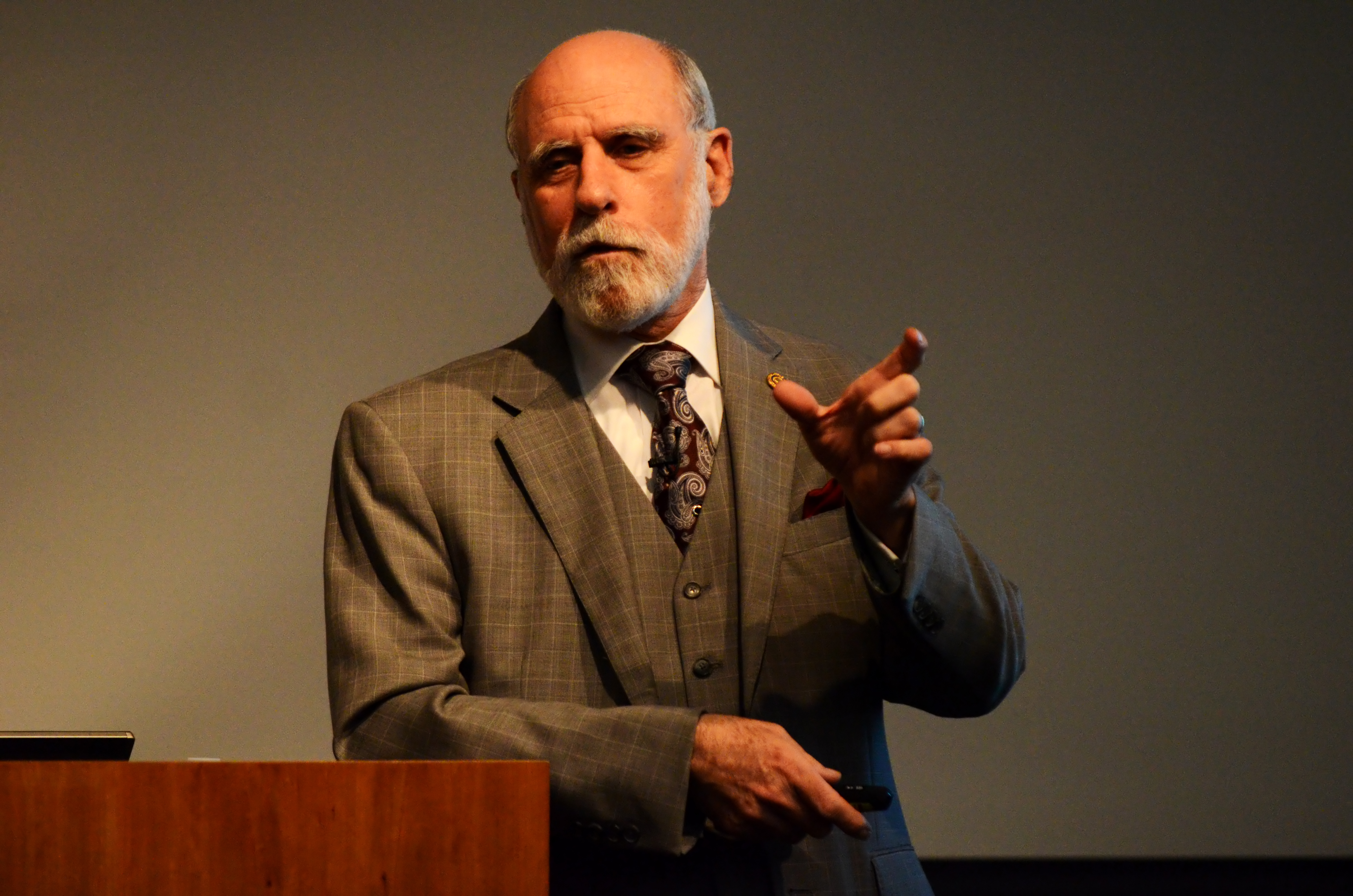Google vice president and father of the Internet Vinton Cerf speaks on future online possibilities

Vinton Cerf, vice president of Google, spoke about the future of the Internet on Tuesday. Cerf is widely regarded as one of the fathers of the Internet.
By Ryland Lu
March 7, 2012 3:09 a.m.
As a graduate student at UCLA, Vinton Cerf worked on a team that eventually created the first computer network. Later, as an associate professor at Stanford, he helped develop a code to allow for the movement of digital data.
On Tuesday, Cerf returned to his alma mater as the vice president of the world’s most popular Internet search engine.
The Google executive spoke in front of an auditorium packed with students, faculty and curious observers in the California NanoSystems Institute about the Internet and its future as part of a seminar series called “Managing Inventions.” His talk centered on the transformative potential of Internet technology in fields such as security, medicine and technology.
Lee Goodglick, a cancer biologist at the David Geffen School of Medicine and the host of the seminar, said he hoped Cerf would bring together people from different walks of life to exchange ideas and build collaborations.
Cerf received his master’s degree and Ph.D. in computer science at UCLA. During his time at the university, Cerf worked with computer science Professor Leonard Kleinrock to develop ARPANET, the name for the Internet at the time.
During the talk, Cerf described the moment that the first transmission went through from a Stanford Research Institute satellite to a ground station at UCLA.
“I jumped and shouted, “˜It works,'” he said.
Familiar with its origins, Cerf said he now sees substantial growth potential for the Internet in the modern era, as well as specific challenges.
With the spread of the technology to Asia and non-Western countries comes the challenge of dealing with languages and alphabets that the Internet was not originally intended for, Cerf said.
One particular difficulty: adjusting domain names to non-Latin scripts.
The recent furor surrounding the Stop Online Piracy Act highlighted another recent challenge facing the Internet, which Cerf touched on in his talk. He said people’s concerns with the act were legitimate because it had the potential to suppress the flow of information online.
He said artists should have a way to monetize their works, but that Internet users’ right to open access should be respected.
Ultimately, however, Cerf said he mainly sees growth and a future where even cars could be controlled by online systems. He also said he hoped the technology could better detect pandemics and be used to make emergency phone calls instead of dialing 9-1-1.
Internet technology has grown to be so specific that it can remotely detect the opening of a wine bottle through Internet-based sensors, he said.
Abhishek Debchoudhury, a graduate student in computer science who attended Cerf’s lecture, said he enjoyed the talk and found Cerf to be an engaging speaker.
“It was very interesting, both in his stories about the origin of the Internet as well as views on where things are going in the future,” Debchoudhury said.


